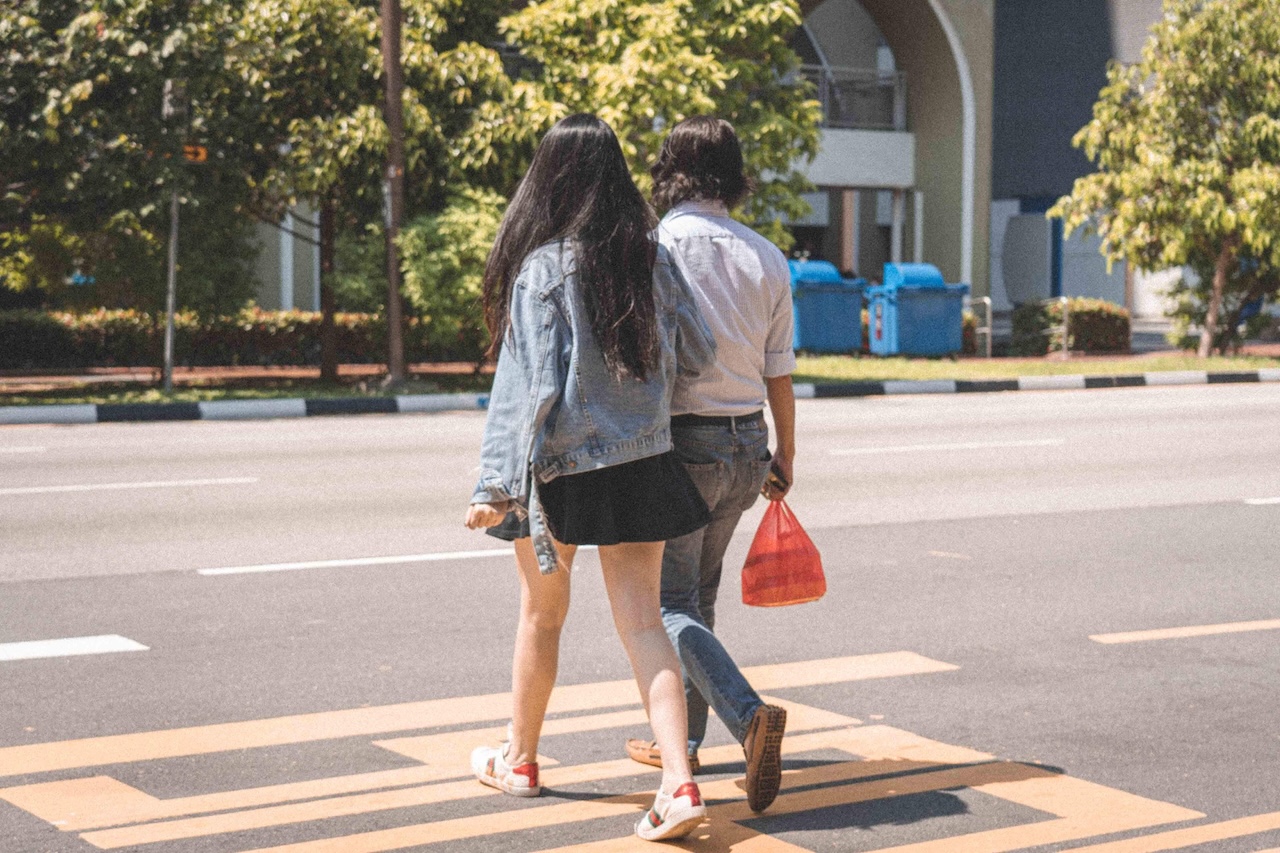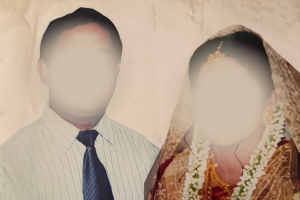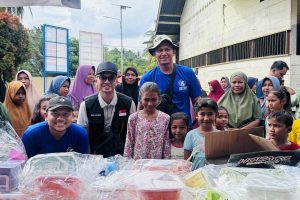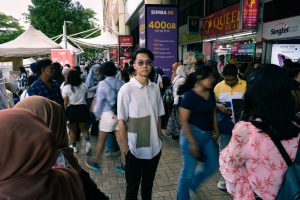This story is part of RICE Media’s Storytellers initiative, a mentorship programme for budding content creators to learn about the art of creative non-fiction. This piece is a product of a partnership between RICE Media and Singapore Management University (SMU) for its Professional Writing module.
Top image: Zachary Tang / RICE file photo
“So… are you just dating me for my passport?”
The question hangs between us, wrapped in a half-smile that doesn’t quite reach her eyes. We’re seated at a corner table in Bedok Food Centre, the Saturday night crowd providing a steady backdrop of clanging plates and conversations. The bak chor mee I was enjoying moments ago now sits heavy in my stomach.
I’ve been in Singapore for four years as a university student. I’d heard about this moment from fellow Southeast Asian friends—the inevitable passport question. That awkward bit when romantic interest collides with immigration status.
Yet experiencing it firsthand leaves me momentarily speechless.
What surprises me isn’t the question itself, but the timing: three dates in, right after mentioning my hope to work in Singapore after graduation. Her expression shifts, subtly but unmistakably. Suspicion replaced what had been genuine curiosity, her eyes narrowing slightly as she awaited my response.
I force a laugh. “I think my parents would disown me if I didn’t bring home a nice Filipino girl anyway.”
She smiles, looking relieved, and the conversation moves to safer territory: a new restaurant in Tiong Bahru, a mutual friend’s birthday. But something fundamental has changed. A new awareness sits between us.
I am Filipino; she is Singaporean. I am temporary; she is permanent.
This isn’t just my story. When I shared this experience with other Southeast Asian friends studying or working in Singapore, similar anecdotes emerged with striking consistency. The passport question comes in various forms, but its essence remains: Are your feelings authentic, or are you just seeking an immigration shortcut?
What does it say about belonging when even our most intimate connections are scrutinised through the lens of nationality? Why are Southeast Asians particularly vulnerable to this suspicion? Behind every coffee date lies an unspoken question: Are you dating for love, or for a chance to obtain a precious Singapore citizenship?
This question may seem trivial to those who’ve never had to confront it, but it shapes countless interactions, creates invisible barriers, and forces many into constant self-doubt. After all, what does it mean to search for love in a society that assumes you’re only searching for security?
For the Filipinos studying, working, and building lives in Singapore, this is not merely an uncomfortable stereotype. It’s a daily reality that reshapes how we view ourselves, our relationships, and our place in this country.
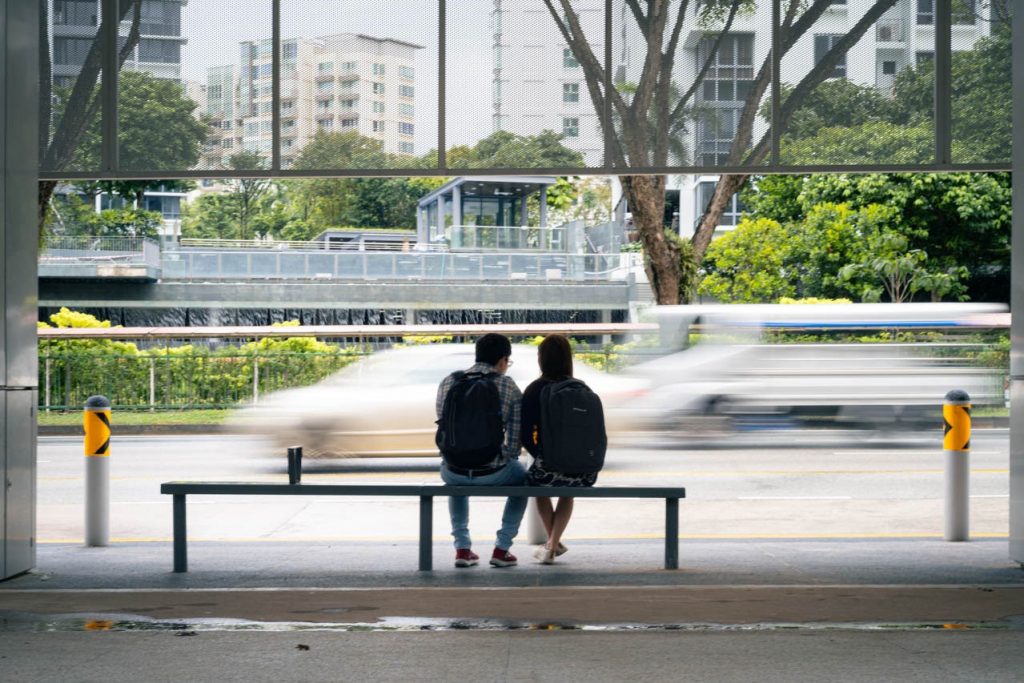
The Weight of the Red Passport
The ‘red passport’ refers to the crimson-coloured Singapore passport that’s consistently ranked among the world’s most powerful travel documents, allowing visa-free access to over 190 destinations.
But beyond international mobility, it represents something far more significant: belonging, security, and access to a suite of benefits that permanent residents and citizens enjoy.
These benefits are substantial. Singaporean citizens and permanent residents can access subsidised housing through the Housing Development Board (HDB), participate in the Central Provident Fund (CPF) savings scheme, receive healthcare subsidies, and enjoy educational benefits for their children.
For foreigners living in Singapore on work or student passes, these privileges remain out of reach, creating an undeniable power imbalance in cross-cultural relationships.
It’s a commonly observed dynamic that immigration systems naturally create two distinct classes of people—those with access to state benefits and those without. When romantic relationships enter this equation, the structural incentives at play cannot be ignored, regardless of how sincere the emotional connection might be.
These structural incentives form the foundation of the stereotype. The logic goes: if dating a Singaporean potentially leads to permanent residency or citizenship, and all the accompanying privileges, then foreigners must surely view locals as tickets to stability rather than romantic partners.
For Filipinos in Singapore, this stereotype carries additional weight. Historical patterns of Filipina domestic workers marrying Singaporean men, media narratives about mail-order brides, and broader Southeast Asian migration patterns have cemented certain assumptions in the Singaporean consciousness.
The Filipino worker becomes reduced to someone perpetually seeking escape from their home country’s economic conditions. In other words, someone whose affection might always be suspected of having ulterior motives.
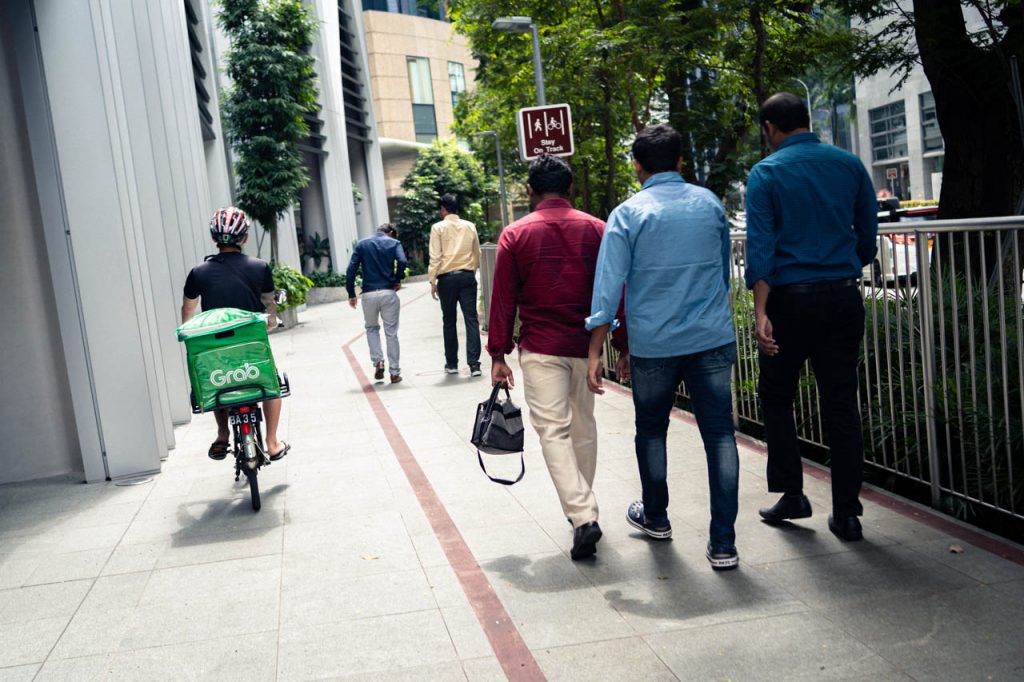
Real Lives, Real Feelings
Toby Reyes* works as an analyst at a multinational corporation in Singapore. Despite his professional success, dating in Singapore has been an emotional minefield.
“I once mentioned to a date that I lived in a condo with roommates,” Toby tells me over kopi at a Tanjong Pagar cafe.
“She asked if I was planning to apply for PR, hinting that it was so I could ‘get an HDB’. We had been talking for maybe 40 minutes at that point.”
He laughs, but there’s some tension. “I earn a good salary. I could continue renting if I wanted to. But the moment you’re Filipino, people assume you’re desperate for housing subsidies or stability.”
Toby describes an internal struggle many foreign nationals face: the constant need to prove sincerity.
“You start questioning yourself. Should I avoid mentioning my visa status? Should I pretend I’m not interested in staying in Singapore long-term? It’s exhausting to always wonder if showing interest in someone might be perceived as showing interest in their passport.”
This self-consciousness extends beyond individual dates. In group settings, jokes about “passport hunters” or “PR seekers” often surface when Singaporeans discuss dating foreigners. These comments, while perhaps intended as harmless banter, create environments where foreigners feel perpetually judged.
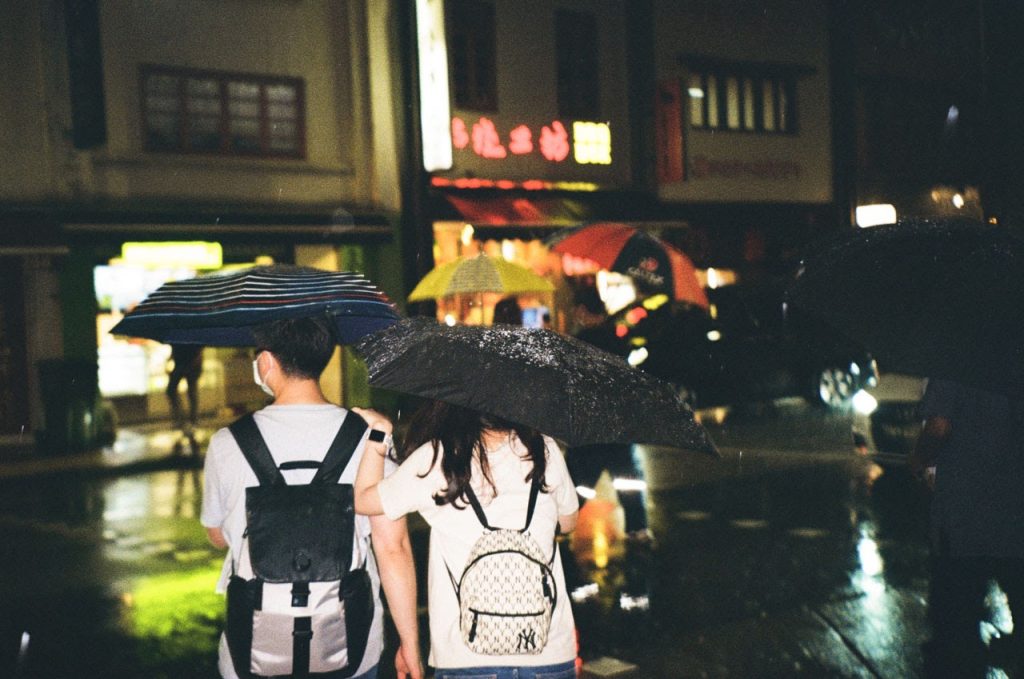
Toby’s story is not unique.
“I was at a friend’s birthday party,” shares Ericca Wijaya*, an Indonesian undergraduate student at Singapore Management University.
“Someone made a toast joking about how all the single Singaporean guys should be careful around me because I was ‘probably looking for a sponsor.’ Everyone laughed, including my Singaporean friends. I smiled too, but inside I was thinking: Is this how they see me?”
Ericca’s experience reflects another layer to this stereotype—gendered expectations that complicate cross-cultural dating even further.
“Sometimes I feel like men are interested in dating me because I’m Indonesian, not because I’m me. There’s this weird expectation that I’ll be more ‘traditional’ or ‘family-oriented’ than Singaporean women. It’s like they’re not seeing the actual person.”
For both Toby and Ericca, dating here involves navigating a complex web of assumptions. Every compliment about Singapore (“I love how safe it is here”) risks being interpreted as a hint about long-term intentions. Every question about someone’s family background might be seen as calculating potential citizenship pathways.
“The worst part,” Toby confides, “is when you actually do fall for a Singaporean. You start wondering if they’ll question your motives. Or worse, if their friends and family are warning them about you.”
These dating dynamics don’t just affect foreigners. They reshape the experiences of locals, too.
When they date a non-Singaporean Southeast Asian, locals often face scrutiny from their social circles. Friends and family members might express concern, wondering if they’re being ‘used’ for their citizenship status. These external pressures can strain even the most genuine connections.
Christine Teo*, a Singaporean whose father dated a Filipina for three years, experienced this firsthand.
“My grandmother would constantly ask about her visa status, her family’s background, and whether she was sending money home. It wasn’t malicious, but there was this underlying suspicion.”
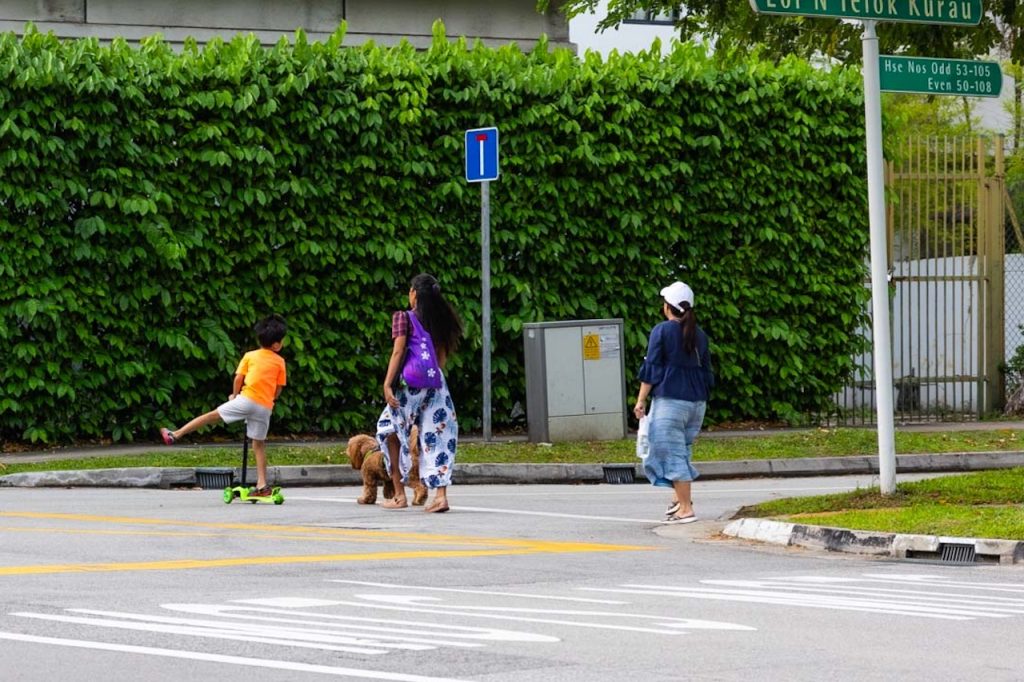
The relationship eventually ended for unrelated reasons, but Christine acknowledges the external pressure didn’t help. “It’s hard enough figuring out if someone is right for you without everyone analysing their potential hidden agenda.”
For locals, this isn’t just about empathy—it’s about rethinking how we assign worth and intention in romantic relationships. The passport question affects everyone in Singapore’s dating ecosystem, albeit in different ways.
Security vs Opportunism: The Blurred Line
What happens when the stereotype becomes a lens through which all relationship decisions are viewed?
The stereotype of the ‘passport hunter’ obscures a more nuanced reality: seeking security in relationships is universal. Marriage has historically served economic and social functions alongside romantic ones. People everywhere consider factors like financial stability, shared values, and prospects when choosing partners.
Many intercultural couples I spoke to highlight a common frustration: the assumption that citizenship benefits are the primary motivation for foreigners in these relationships. The problem isn’t considering practical benefits; it’s the suggestion that doing so somehow taints genuine affection.
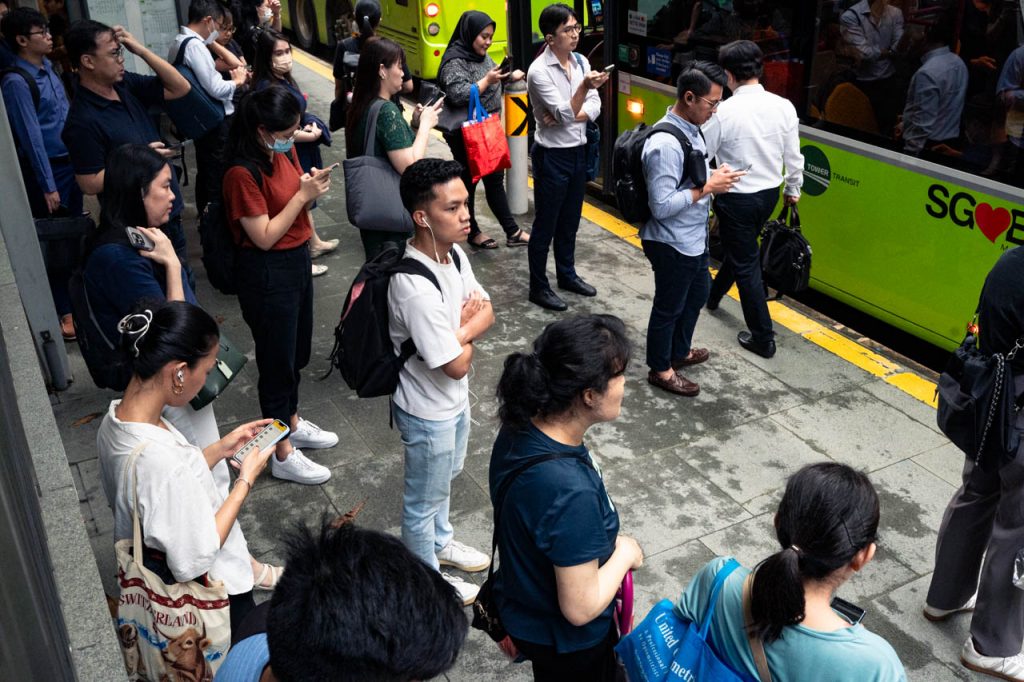
After numerous conversations with both locals and foreigners in relationships, a pattern emerged.
Singaporeans themselves often have checklists for potential partners: good income, strong education, family background, and even HDB eligibility. Yet we don’t normally accuse Singaporeans of “gold-digging” when they express a preference for financially stable partners. There’s a double standard at play that seems to apply uniquely to cross-cultural relationships.
In response to this persistent stereotype, foreigners have developed various coping mechanisms. Some have even chosen to embrace the stereotype with irony.
Josiah Mendoza*, who has lived in Singapore for eight years and recently obtained permanent residency through his profession (not marriage), jokes about it on his dating profiles. “It breaks the tension and filters out people who might be preoccupied with the stereotype.”
Others find the accusation deeply offensive.
“Would I like security and stability? Of course!” says Ana Santos*, a Filipina healthcare worker.
“But suggesting I would build an entire relationship—commit years of my life, possibly having children— just for a passport is dehumanising. It reduces me to someone who can’t possibly have genuine feelings.”
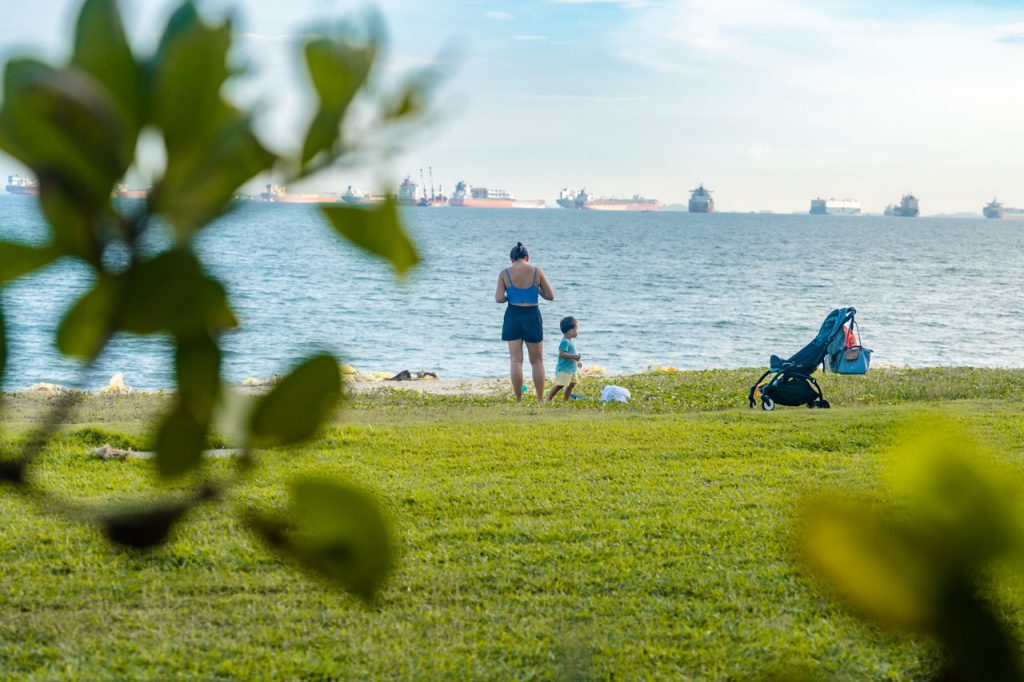
Both perspectives highlight the same truth: the line between seeking security and being opportunistic is subjective and often influenced by our own biases.
The damage inflicted by this stereotype extends far beyond the dating phase.
Scrolling through online forums and social media groups for intercultural couples in Singapore reveals heartbreaking stories. Some foreign spouses share how their marriages broke down due to incompatibility, only to have their Singaporean partners accuse them of “using them” for PR status. What might have been a normal relationship challenge becomes weaponised into a painful accusation in already difficult circumstances.
This suspicion can linger even after years of marriage.
“We’ve been married for six years, have two children, and my husband’s family still makes jokes about whether I’ll leave once I get citizenship,” shares Ana.
“It hurts because it suggests nothing else about me—not my love for their son, not my role as a mother to their grandchildren—matters as much as my nationality.”
Authenticity in a Suspicious World
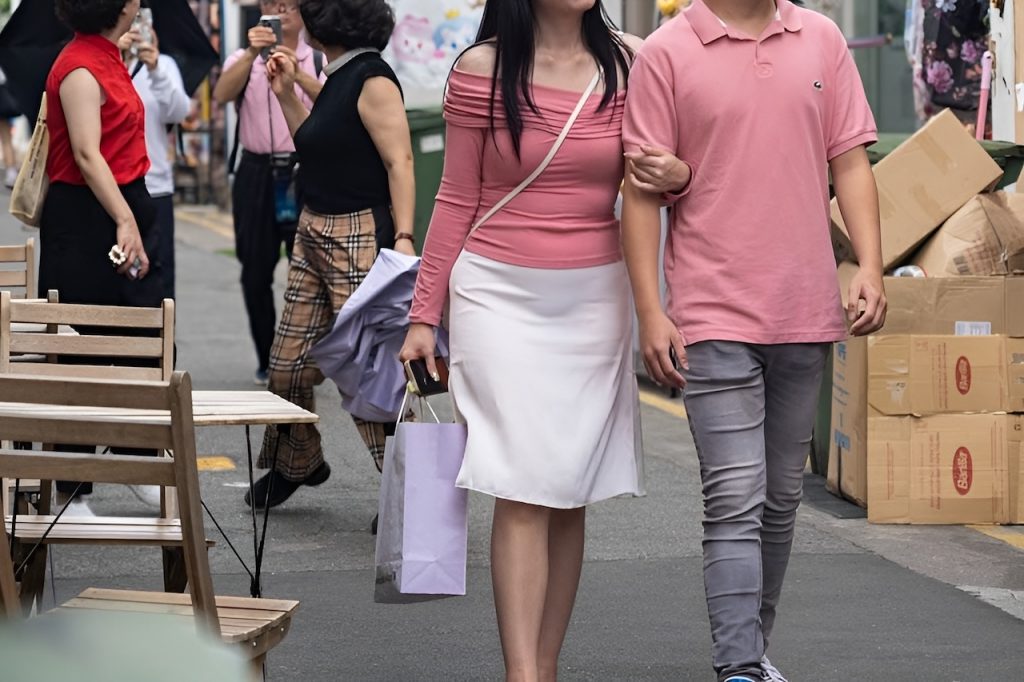
So, where does this leave the Filipino—or any Southeast Asian foreigner—looking for connection in Singapore? How do we date authentically in an environment where our intentions are constantly questioned?
For Toby, the answer has been increased selectivity. “I look for people who see beyond stereotypes, who ask questions about me as a person rather than as a category. It means I date less frequently, but with greater meaning.”
Ericca has taken a different approach. “I’m upfront about my plans. I tell people early on that I intend to return to Indonesia after completing my studies. It filters out anyone who might be concerned about my ‘hidden agenda,’ and lets us focus on enjoying the present.”
These individual strategies point toward a broader need for a cultural shift—one where foreigners are seen as complete individuals with complex motivations rather than walking stereotypes. But such shifts happen slowly, through countless personal interactions, conversations, and relationships that defy expectation.
A year after that uncomfortable dinner at Bedok Food Centre, I found myself on a third date with someone else: a Singaporean who had never once questioned my intentions or made assumptions about my future plans. As we walked along the Singapore River, she asked where I saw myself in five years.
I hesitated, weighing my words carefully. “I honestly don’t know,” I finally answered. “I love Singapore, yet I also miss home sometimes. I could see myself building a life here, or returning to Manila, or even moving somewhere entirely new.”
Instead of reading between lines that weren’t there, she simply nodded. “That makes sense. It’s hard to know exactly where life will take you.”
In that moment, I realised what had been missing from so many previous interactions: the freedom to be uncertain, to explore possibilities without having my every word analysed for hidden citizenship agendas.
The freedom, essentially, to date like anyone else, with all the complexity, confusion, and hope that entails.
It wasn’t a red passport I was after. Just the chance to write a future with someone who didn’t presume to know the ending.

